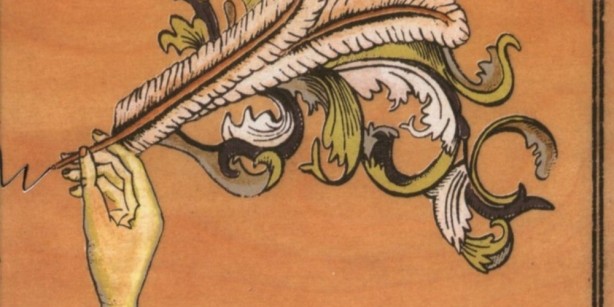 Music
Music
7 classic Canadian albums that should've won an alternative Juno
by AUX staff
February 12, 2015
In retrospect, music archeologists may view the aughts as the era when Canadian music—at least on an international stage—came of age. Indeed, in the space of a decade, Canada produced fistfuls of international stars, and surprisingly, they weren’t limited to pop personalities like Michael Bublé and Céline Dion: The Arcade Fire became one of the world’s most beloved bands, and, many argue, released the best album of the decade in Funeral. Drake, thanks to Take Care, put Torontonian—and, by extension, Canadian—hip-hop on the map in a big, big way. Acts like Deadmau5 and Plastikman shone a spotlight on Canada’s electronic music scene. And our indie-rock was unstoppable: DFA1979, The Constantines, Wolf Parade and Owen Pallett all became big-ticket stars.
So, with the Junos arriving this spring, it got us thinking: Yes, Canadian music has become internationally recognized. But how good are we at recognizing our own music? We sifted through the Junos’ alternative award winners, and largely, they get a G-pass—Metric, Arcade Fire, Broken Social Scene, and Julie Doiron have all won alternative album of the year. But we were also surprised to learn that certain classic Canadians albums haven’t earned Junos. Like who, you ask?
Weakerthans — Reconstruction Site
To be fair, Reconstruction Site was nominated for a Juno in 2004—and that year, the alternative album award went to Buck 65’s Talkin’ Honky Blues. Still, despite John K. Samson’s flawless discography, Reconstruction Site was peak Weakerthans: They were growing into the country-tinged sound they’re now best known for, and some of the band’s essential characters—a cat struggling with its owner’s mental illnesses, a Derrida-reading explorer, the embittered dollar-store cashier—all appeared on the album. It’s one of the band’s tightest collections of love songs, antipathetic city anthems (“I hate Winnipeg,” when sung aloud, is nothing if a rallying cry for all the city’s supporters), and decidedly grown-up political diatribes. It’s the album that established John K. as a national gem.
So: Reconstruction Site never won a Juno in 2004; they didn’t win in 2001, either, when they were nominated for Left and Leaving. John K., however, never seemed bummed—in fact, he’s even taken the Junos on a tour of Canadian art.
Arcade Fire — Funeral
You’ll find a certain strain of Arcade Fire fans who argue that Funeral wasn’t the Montreal supergroup’s best album. But you won’t find anyone who disputes its influence. Before they established their forays into Haitian culture on Reflektor and their love of Springsteen-ian malaise on Neon Bible, Will, Regine and co. established a key trend of the ’00s: The supergroup. And namely, the sounds you could create with a supergroup.
And so Funeral was one of the biggest, and most revered, albums of its time: It juxtaposed highly introverted narratives with the brashest of arrangements, padding songs with slashing strings, In the Aeroplane-esque accordions, and big-band pianos. It’s arguably the album that re-established Montreal as a musical force—something the Quebec city still hasn’t reliquished—and made Arcade Fire the biggest rock band in the frickin’ universe. It landed “Wake Up” on the Where the Wild Things Are soundtrack, but somehow, it never earned the Arcade Fire a Juno.
Still, it fell to an undeniably worthy album: In 2005, Feist’s Let it Die won a Juno for best alternative album. The Arcade Fire would eventually win an award in 2011 for The Suburbs and again in 2014 for Reflektor—check their 2011 gala performance below.
Wolf Parade — Apologies to the Queen Mary
If Arcade Fire became one of the greatest bands of the 2000s, Wolf Parade—another Montreal gem—became one of the era’s biggest cult favourites. At the time, we didn’t understand it: Their Sub Pop debut, Apologies to the Queen Mary, always felt like it was on the verge of falling apart, fusing absurdist lyrics, noisy tendencies, sharp-edged post-punk, and Springsteen-esque anthems. It’s an album that’d attract indie-rock fans, sure, but it’s also an LP that found an audience among white-belted Blood Brothers acolytes. It was an incredible album, but it also made no sense.
Years on—and after Wolf Parade cut At Mount Zoomer and Expo 86—the album began to make more sense, especially after its members began fracturing. As they split, Wolf Parade’s other projects—Sunset Rubdown, Frog Eyes, Divine Fits, Moonface—all began to come into focus, and it helped explain what made Wolf Parade so loveable: They were a band that could barely contain their members’ ideas.
Surprisingly, Apologies never earned a nomination in its year, 2006—though Broken Social Scene’s self-titled album took home the prize.
Constantines — Shine A Light
While speaking to the press during last summer’s reunion, The Constantines’ members mentioned that Shine A Light was among their most in-demand records. No surprise, really: While the band evolved in numerous directions, their Sub Pop debut remains their essential collection of songs. Sure, it lost a little of the rawness of their debut; no, it didn’t feature the Guess Who’s guitar amps, as on Tournament of Hearts; but regardless, Shine A Light was the band’s Platonic ideal, blending pummelling post-hardcore, anthemic shout-a-longs, and Bry Webb’s introspective lyrics.
In retrospect, Shine A Light is one of the decade’s essential Canadian albums, as vital as anything the New Pornographers, Broken Social Scene, or Fucked Up ever released. It earned a nomination for best alternative album in 2003, but never took the award home.
Fucked Up — The Chemistry of Common Life
David Comes to Life and Glass Boys cemented Fucked Up as a premier experimental hardcore band, but the album that established them as a force was undeniably the Chemistry of Common Life. Prior to 2008, the band were beloved punk world—their early work is canon-worthy, and Hidden World inched them closer to larger audiences—but with Chemistry, the began to drop jaws.
Chemistry of Common Life won the Polaris Music Prize that year, and for good reason: It was very much a hardcore album, but it was also one of the densest conceptual albums they had, and added layers of flutes (?), bongos (??), horns (???) and swirling shoegaze (????) to the mix. It’s an impossible album that still defies categorization, and still, many of its tracks remain Fucked Up staples. Yet in 2009, the Juno Award went to the Stills for the rock-solid Oceans Will Rise.
Japandroids — Celebration Rock
Vancouver twosome Japandroids have stumbled on a unique sonic alchemy: On one end, their sound shares plenty with gritty two-piece punk acts like Animal Faces and Solids. But on the other, they have a sheer exuberance, earnestness, and anthemic quality that places them in another category entirely—Celebration Rock was nuclear-grade fun, party music that could easily stand alongside Andrew WK.
Celebration Rock has some strange qualities: Even if you’ve never sat down with the album, you’ve probably heard most of it. That’s because, since 2012, it’s wormed its way into the Canadian consciousness: You’ve heard these tracks blasted from cars in the summertime. You’ve heard them blasted at countless record stores. Heck, go see the Canucks play, and you’ll probably hear something from Celebration Rock. It may never have earned the critical clout of Funeral, but god damn, Japandroids certainly owned—and still own—a cultural moment.
Celebration Rock was nominated in 2013, though Metric’s Synthetica won the alternative album of the year.
Timber Timbre — Creep on Creepin’ On
For Taylor Kirk, Creep On Creepin’ On was nothing short of a career-defining album. And it defined Timber Timbre as a band with a surprisingly broad audience: It allowed him to tour the folk-fest circuit; its darker edges earned him plenty of metal fans; and the post-punk crowd loved pointing out that, through it all, Alan Vega’s imprint can be heard throughout the album.
Nevermind its audience, though. Creep On Creepin’ On was an album that singular in sound: Built around old-world Appalachian folk, it twisted the genre into areas previously unknown—at times, it sounds like a David Lynch films, and at others, it sounds like a wax-museum haunted house. And somehow, it pulls off being creepy without being silly—it isn’t called Spoop on Spoopin’ On, after all.
We’re partnering with the Junos in the leadup to the awards in March. Watch the JUNOS on March 15 at 7pm EST on CTV and subscribe to Juno TV on YouTube.
Tags: Music, Cancon, News, Junos 2015





